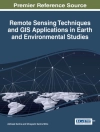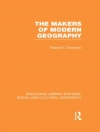This book discusses a broad range of vital issues in public health, encompassing health facilities, the healthcare system, disease and epidemiological transition of disease, spatio-temporal change of health facilities, disease patterns, and the complex reciprocal relationship between human health and the environment. The book is arranged into three broad sections. Part I: Socio-demographic determinants of public health and policies; Part II: Spatio-temporal & environmental determinants of public health and policies; and Part III: Disease epidemics and challenges. Considering all these overarching themes, this book has been prepared to discuss and provide insights to generate awareness of the holistic perspective of social, cultural, and political factors for public health, disease, epidemics, health facilities, the healthcare system, government policies, prosperity and backdrops in global and local contexts as a geographical perspective. The book should attract the attention of students, researchers, academicians, policymakers and other inquisitive readers interested in different aspects of public health, health geography, and spatial demography.
Daftar Isi
Chapter 1. Development of Health and Medical Geography: A Systematic Review.- Chapter 2. Global Trend of Environmental Health Research: A Comprehensive Bibliometric Analysis.- Chapter 3. Assessing the Financial Burden: A Comprehensive Study of Cancer-related Premature Mortality and its Effects on India’s Economic Productivity.- Chapter 4. Inattention diminishment and health geography: an analysis upon elementary to higher secondary students.- Chapter 5. Utilisation and Accessibility of Healthcare Services among Gig Workers: A Systematic Review.- Chapter 6. Rashtriya Swasthya Bima Yojana (RSBY) Availing Among Middle and Old Age Migrants: A Study of National Health Insurance Programme in India.- Chapter 7. HIV / AIDS in Village India: Issues and Challenges (An Empirical Study of Naxalbari Area, Darjeeling).- Chapter 8. Determining the associated factors of mothers’ healthcare-seeking behaviour for common childhood morbidity among tribal and non-tribal communities in India using Andersen’s Behavioral Model.- Chapter 9. A Cross-sectional Study of the Knowledge, Perceptions, and Practices Menstrual Hygiene among College Students.- Chapter 10. Effects of COVID-19 on Street Vendors of Suti-I and Suti-II C.D. Blocks of Murshidabad District, West Bengal.- Chapter 11. Prevalence and Correlates of Menstrual irregularities among Young women in India: Findings from the Fifth Round National Family Health survey.- Chapter 12. Prevalence, pattern, and predictors of multi-morbidity among India’s elderly population.- Chapter 13. Demographic & Socio-Economic Determinants of Indigenous Tribal Fertility Behaviour: A Case Study of Dinhata-II Block of Cooch Behar District, West Bengal.- Chapter 14. Fostering Employee Mental Health: Role of HRM Practices in Unicorn Startups.- Chapter 15. Determinants of Wasting Among Under-Five Children in Tea Gardens of Kalimpong-Darjeeling Regions: A Multilevel Analysis.- Chapter 16. Socio-demographic Determinants of Desired Fertility among Women Working in Formal sectors in Abuja.- Chapter 17. Unpacking Traditional Contraceptive Practices in Bangladesh: A Comprehensive Examination of Nationally Representative Large-Scale Data.- Chapter 18. Practice of Female Sterilization among Currently Married Women in West Bengal, India: Trends and Magnitude of Differentials.- Chapter 19. Determinants of Institutional Delivery in West Bengal: Findings from NFHS-5 (2019-21).- Chapter 20. Rural-urban Differential use of Cooking Fuel and its Association with Women’s Nutritional Health and Child’s Birth Weight- Chapter 21. Waterborne Health Risks in Cooch Behar Municipality, India: A Study of Water Usage, Treatment, and Sanitation Practices.
Tentang Penulis
Dr. Asraful Alam is an assistant professor and head of the Department of Geography, Serampore Girls’ College, University of Calcutta, West Bengal, India. He received his MA and Ph D degrees in geography from Aligarh Muslim University, Aligarh and Aliah University, Kolkata, India, respectively, and also completed a PG diploma in remote sensing and geographic information systems (GIS). Alam completed his post doctorate (PDF) from the Department of Geography, University of Calcutta, Kolkata, India. Previously, he was an assistant coordinator in the PG Department of Geography, Calcutta Women’s College, University of Calcutta, Kolkata, India. Dr. Alam is one of the Project Director of collaborative major project on “Pradhan Mantri Ujjwala Yojana: An Impact Assessment in Relation to the Life of Women in Assam and West Bengal” sponsored by Indian Council of Social Science Research, Ministry of Education, New Delhi. His research interests include population geography, agricultural geography, climatology, health geography, remote sensing and GIS, and developmental studies. He has contributed various research papers published in various reputed national and international journals and edited book volumes. He has authored jointly edited books entitled Habitat, Ecology and Ekistics: Case Studies of Human-Environment Interactions in India, Agriculture, Food and Nutrition Security: Case Study of Availability and Sustainability in India, Agriculture, Environment and Sustainable Development:—Experiences and Case Studies, Life and Living through Newer Spectrum of Geography, Self-Reliance (Atmanirbhar) and Sustainable Resource Management in India, Climate Change, Agriculture and Society—Approaches toward Sustainability, Population, Sanitation and Health: A Geographical Study Towards Sustainability; Agriculture and Climatic Issues in South Asia Geospatial Applications and Disaster Risk, Resilient Agriculture, and Livelihood: Methods and Applications. He was a convener in the National Seminar on Self-reliance (Atmanirbhar), Sustainable Development and Environment 25–26 March 2022 sponsored by the Indian Council of Social Science Research (ICSSR) organized by the Department of Geography, Serampore Girls’ College. Alam has served as an editorial board member in peer-reviewed international journals PLOS ONE, Earth Science, Scientific Journal of Health Science Research, and Frontiers in Geochemistry.
Dr. Rukhsana is currently serving as an Assistant Professor in Department of Geography at Aliah University, Kolkata. She obtained her doctoral degree in Geography from Aligarh Muslim University. Dr. Rukhsana has published more than 40 research papers in reputed journals and four books at national and international levels. Dr. Rukhsana has presented a number of research papers and she was also conferred with the International Young Geographer Award. She has attended XXV FIG International Congress 2014, Malaysia, and ICGGS-2018, Bangkok, Thailand. She has supervised 4 Ph D students. Her research interests include agriculture, urban population, environment and development in geography. She has supervised three scholars leading to the award of Ph.D. degrees in Geography. Dr. Rukhsana has successfully completed one major research project and one is ongoing sponsored by ICSSR, New Delhi. She has been the Head of the Department of Geography at Aliah University.
Sourav Biswas is a Ph.D. Research Fellow at the International Institute for Population Sciences, Mumbai. He has five years of research experience in the field of Environmental Health. He obtained his BSc in Geography from Vidyasagar University and an MSc in Geography from the University of Calcutta, followed by a Masters in Population Studies at the Institute for Population Sciences. He has served as a reviewer for numerous reputed international journals. His research specializations include Environmental Health, WASH (Water, Sanitation, and Hygiene), Child and Women Nutrition, remote sensing, and GIS. Biswas has published eight papers in international journals of repute and contributed two chapters to edited books. He has presented his research findings at various prestigious international conferences, such as the International Population Conference, 2021 held in India, and the International Health Economics Conference, 2022 held in Cape Town, South Africa.
Dr. Nazrul Islam has been serving as an Associate Professor of Geography and Ho D at Cooch Behar Panchanan Barma University, Cooch Behar, West Bengal, India. Presently he is the Head of the Department at the said University. He did his Undergraduate (B.Sc.) and Master’s (M.Sc.) at Calcutta University in Geography. He was awarded a National Scholarship for hisacademic excellence at the undergraduate level. He did his Ph.D. at the University of North Bengal. He has participated in many International and National level seminars/conferences (s) and has published research articles in reputed Journals and chapters in edited volumes. Dr. Islam has co-authored four edited books. He has participated in various training on RS and GIS from IIRS, Dehradun, DST, Kolkata, and different Universities in India. He has visited three foreign countries, Bangladesh, Thailand, and Vietnam, to attend International conferences. His areas of interest include Cartography, Environmental, and Industrial Geography. He has ample knowledge of GIS and Remote Sensing and the application of MCDM & Machine learning in Geography. He taught his students Google Earth Engine, Python, SPSS, and R.
Prof. Ranjan Roy is a well-known academician in Geography in west Bengal as well as in India and is a Professor and former Ho D at the department of Geography and Applied Geography of University of North Bengal, Siliguri, India. He received his M.Sc. and Ph.D degree in Geography and Applied Geography from the University of North Bengal and specialized in Cartography. His research interests are in Applied Cartographic techniques, Agricultural Geography, Urban Geography, Population problems, Rural Development, Regional Planning and experts in Remote Sensing and GIS. Prof. Roy has already published over ninety (90) articles in different reputed national and international journals and edited books. He has organized different national seminars and workshops till now. Prof. Roy has supervised a total of ten (10) scholars for Ph.D degree and six (06) scholars for M.Phil degree. He was co-investigator in “Preparation of contour map for drainage management in English Bazar municipality, Malda” which was sponsored by Malda municipality under govt. of west Bengal and also co-investigated UGC SAP DRS-I programme on ‘Geo-hazards in Sub-Himalayan West Bengal” from 2009 to 2014. He was a project investigator of North Bengal University assistance project on “An Appraisal of Urban Basic Services and Amenities in Newly Emerged Census Towns: A Case Study of Siliguri Subdivision of Darjiling District, West Bengal” in 2017-2018. Recently he has completed as Principle Investigator of Winter School programme on Geospatial technology that funded and supported by Department of Space and Technology (DST) of Govt. of India. He has jointly edited a book that titled “Application of Geospatial Technology in Geomorphology and Environment”.












